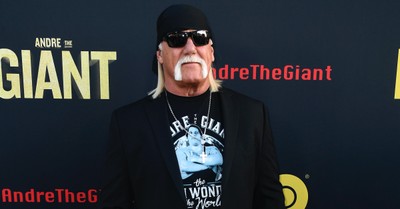September 12, 2007
On the sixth anniversary of 9/11, Hugh Hewitt, host of the nationally syndicated “Hugh Hewitt Show,” interviewed Pulitzer Prize winning author of The Looming Tower: al Qaeda and the Road to 9/11 Lawrence Wright about General Petraeus’s report on the Iraq war, the new bin Laden videotape and the global threat of al Qaeda.
Hugh Hewitt: We’re talking on the 6th anniversary of 9/11. In the six years since they launched the successful attack on America, Lawrence Wright, how is al Qaeda faring in the world?
Lawrence Wright: Well, it’s a mixed report. You know, al Qaeda central has been, to some extent, reduced, isolated. It’s been unable to accomplish many of its major goals, especially capturing a Muslim country, and restoring the caliphate and creating a kind of theocratic law. That it’s failed to do. But on the other hand, essentially after November/December, 2001, after the Tora Bora battle, al Qaeda was pretty much a zombie. It was over. The war on terror was at an end, and it’s been amazing to see how that organization has been able to reconstitute itself. It’s now deeply rooted in a lot of countries where it wasn’t present before. The banner of al Qaeda has been taken up by a lot of disaffected young Muslims around the world who hadn’t been interested in it before. So on balance, I think it’s as dangerous as it was before 9/11, but in different ways.
Hewitt: What does the new bin Laden transcript tell you—the videotape that he released last week?
Wright: Well, it’s a peculiar document. For one thing, I’m always amused by his kind of commentary on American politics, and you know, averting to the Kyoto treaty and stuff like that where he does this kind of second-rate commentary on the American political scene. I think that the message that he wants to get out is that he’s still a threat, he’s still relevant. I think he’s probably not capable of carrying out the high-scale attacks that he has accomplished in the past, but he wants us to think that [he is]. And so by rattling the cages periodically, he accomplishes at least keeping us unnerved.
Hewitt: There is some concern that he signals awakening of sleeper cells with this. Does that still concern intelligence agencies that you stay in touch with, Lawrence Wright?
Wright: Well, it concerns me in that I know…the title of my book, for instance, “The Looming Tower,” was a quotation that bin Laden used three times in a speech that was found on the hijacker’s computer, and I suspect that that was a go-ahead signal. So I am concerned that he may use, and Zawahiri as well, the number two man, use the public media as a way of communicating with his followers.
Hewitt: [bin Laden] has a theory of American character that posited we would run away as soon as we took a series of blows. Is the anger towards Bush in this most recent document the fact that the one thing he thought he knew best about the West has just proven not to be the case?
Wright: No, I think that he is frustrated that we’re still in Iraq. And honestly, Hugh, there’s a … I think al Qaeda’s a little frustrated in Iraq as well. That’s where al Qaeda’s preoccupied, and where it’s been pouring all of its resources, and it doesn’t have much to show for it, either. It’s been, frankly, a draw.
Al Qaeda is in a great public relations situation, whereas if we withdraw, then they can say that they won, and that they defeated the other superpower. And if we stay, then Iraq is still a beacon for disaffected jihadis who want to go join the war. So they are in an enviable position, but really, they haven’t accomplished what they hope to do in Iraq.
Hewitt: Where is [al Qaeda’s] money coming from? One of the compelling narratives in “The Looming Tower” is how bin Laden was stunned when the King arranged for him to be cut off and disappropriated of his family’s fortune, and how broke he was. Where’s their money coming from now?
Wright: To start with, they don’t need very much. Let’s go back to the Embassy bombings in 1998, two simultaneous bombings in East Africa, operated by a sleeper cell in Nairobi, which maintained itself on a fishing boat they ran. They were pretty much a self-supporting outfit. Then you have 9/11, which was, you know, it cost half a million dollars or less. So they were not talking about a lot of money, and Ayman al-Zawahiri wrote to Zarqawi who was the head of al Qaeda in Iraq at one point a couple of years ago before Zarqawi was killed. And he asked for a hundred thousand dollars. Well, doesn’t that figure strike you as being rather small?
Hewitt: Does it mean, then, that no matter how much pressure we put on the financial system, they will continue to be able to survive as long as they’re alive, because it doesn’t take much to go to a cave and eat tuna?
Wright: Listen, when they went from Sudan, the whole movement essentially emigrated from Khartoum to Afghanistan in 1996, when we forced the Sudanese to expel al Qaeda and its followers. And they were really destitute. They were living on well water, and they were eating green pomegranates. They were really close to penniless. And yet it was during that period that bin Laden was able to organize al Qaeda, pull them together, and pull off 9/11. I don’t think that they need a lot of money to be very damaging.
Hewitt: Lawrence Wright … the incineration holocaust talk in bin Laden’s latest missive: What is that all about?
Wright: I think he’s playing to the fears of many Westerners about weapons of mass destruction. And you know, he may have access to that, I don’t know. I don’t think so. I think that the most damaging weapons system that al Qaeda has explored is anthrax. And if they could make a step forward in weaponizing anthrax, as they were trying to do in Afghanistan, then that would be really a serious note.
Hewitt: Has the rest of Islam braced itself to deal with … the al Qaeda menace?
Wright: I think Islam is in a period of deep introspection, and it’s unclear to me how it’s going to be resolved. I think, however, that the answers will come in Europe. That’s where Islam is most at play, with the conflicts with the modern world and the West. … I’m not sure how this is going to work out, because there’s a lot of turbulence right now in Europe, and I’m worried about what actions might occur there in the next few years. But Muslims in Europe are a lot freer than they typically are in their countries of origin to discuss matters of their faith, but they are also freer to be more radical. So it’s a double-edged sword. That’s why it’s on such a high boil right now in Europe.
Hugh Hewitt is host of the nationally syndicated “Hugh Hewitt Show” and executive editor of Townhall.com. To listen to Hugh’s full interview with Lawrence Wright at Townhall.com go here. Contact Hugh at [email protected].










